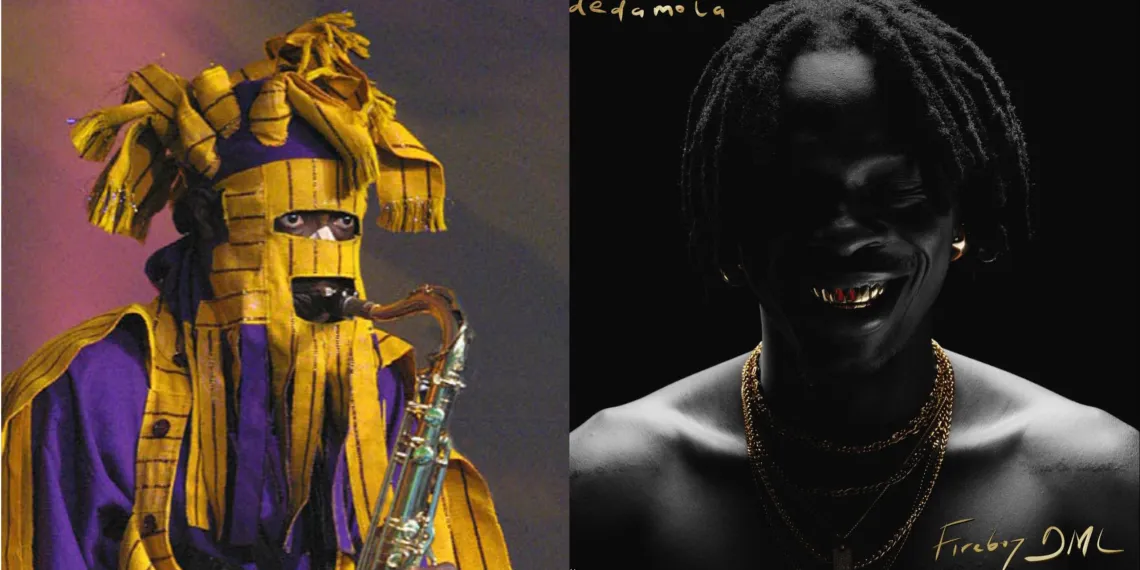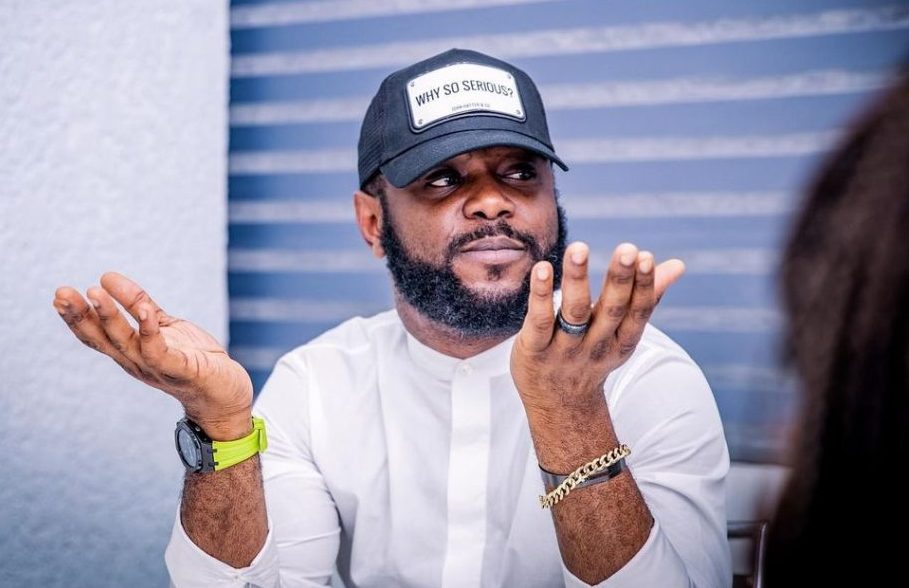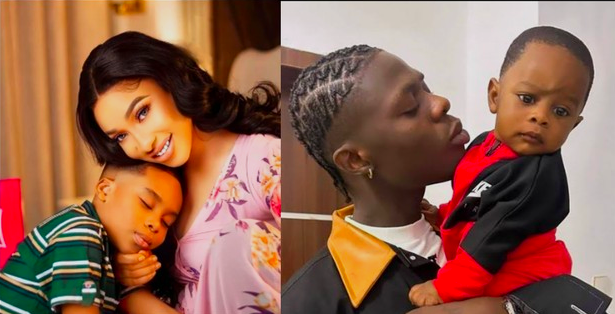‘I didn’t see Lagbaja’s face while recording ‘‘Back N Forth’’ — Fireboy DML
Since he began his career in the early 1990s, Lagbaja’s identity has been shrouded in mystery, and many have wondered what he looked like behind the mask.
One would imagine that Fireboy DML, who has worked closely with Lagbaja, whose real name is Bisade Ologunde, should be able to catch a glimpse of his face. But it appears this might not be happening anytime soon.
The 64-year-old singer once said that only when the common man is recognised in Nigeria will he stop wearing masks.
Fireboy DML has revealed that he never saw Lagbaja’s face while recording one of his favourite tracks, “Back n Forth,” which is included in his just-released album, ‘Adedamola’.
Fireboy collaborated with Lagbaja on his fourteen-track album’s sixth track, ‘Back N Forth’. The feature marks Lagbaja’s return to the music scene after years of hiatus.
Lagbaja, known for wearing a mask as part of his persona, has yet to release any songs or albums in recent years.
Other notable artistes featured on the album are Seun Kuti, Lojay, the American singer-songwriter Jon Baptiste, and the renowned DJ, musician, and producer Spinall.
Speaking with Nandi Madida of Apple Music 1 via FaceTime, Fireboy shared stories about the new release and discussed the song “Back n Forth” featuring Lagbaja.
He shared that though he didn’t feature Lagbaja with the intent of meeting him in person, it was shocking yet intriguing to see that, throughout the entire recording process, Lagbaja had his mask on.
Lagbaja on the album
“You would not believe this: Lagbaja was masked in the studio. It was crazy—I did not get to see his face. I had a few interesting thoughts; I wanted to ask him if I could see his face! But you know, all that matters is that we made the music. That’s what makes Lagbaja, Lagbaja,” he said, because Lagbaja lives up to his name as implied in the Yoruba language, “Mr Nobody”, an anonymous person.
He explains why he reckons the record is unique, highlighting the presence of nostalgia, a product of a combination of the present and the past in one record. He said, “There’s this nostalgic feeling when you listen to the album, so it’s only right that I employed my legends in the game to help me push this message.”
He also shared the excitement and suspense of working with Lagbaja on the project: “It means a lot to me getting a legend like Lagbaja on that record, in [the] time that we are in now.”
Other songs in the Album
Iseoluwa
Fireboy tells us of how he had his downtime when it seemed like he was at his lowest, and the song “Iseoluwa” became his redemption sound. “I recorded that song at a low point in my life. It was a period of learning, relearning, and learning lessons from experience.
Fireboy also highlighted how the learning process wasn’t easy for him, but he kept pushing. He said, “It’s not always a pleasurable experience, to be honest, but it was essential for growth”. He also shared how that season of his life brought a lot of things into perspective, “A lot of things came into perspective—a lot of things that truly mattered, over everything I had been chasing, or everything else I had aspired to have.”
Wande’s Pop
The singer revealed that he made the song Ecstasy in 2021 at DJ SPINAL’s studio in Lagos. He further revealed that Wande Coal’s sound inspired the music he heard in 2015 and 2016.
“It just made a lot of sense. I listened to the beat once, and it immediately took me back to 2015-2016, when I was listening to one of Wande Coal’s records,” as Wande is one of the few artistes he loves and admires. “It’s sort of like a tribute to him; everyone knows I respect him so much,” he said.
Ecstasy
Fireboy revealed that featuring Seun Kuti in Ecstasy was Olamide’s idea. He said, “When we worked on the song together in the studio, he advised me, “I hear Seun Kuti on this”, and the moment he said that it just clicked”.
Also Read: Nasboi: “People Said I’d Amount to Nothing After Mimicking Davido
He shared the mental interpretation he had seeing Seun perform the song. “I just imagined him in one very dark room, spotlight on him, with the sax just blowing away, and it made perfect sense to me.”
Fireboy wrapped up his thoughts by saying, “This whole album is more like a tribute to all the legends that shaped African music over the years, and also a testament to myself, of course, and my growth over the years.”













